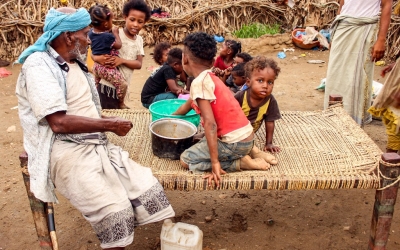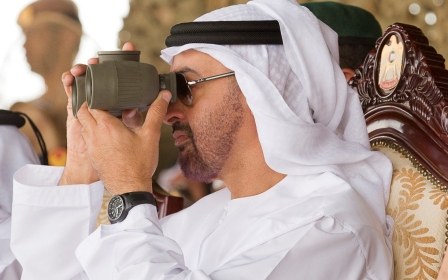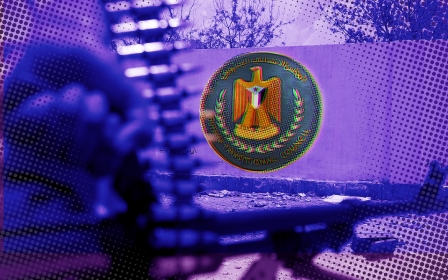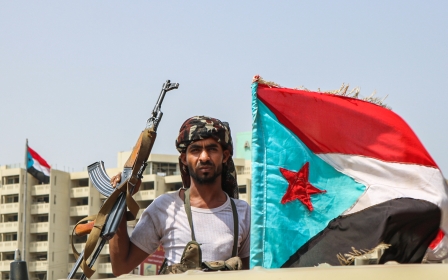Rights groups urge Yemen's Houthis to release journalists sentenced to death
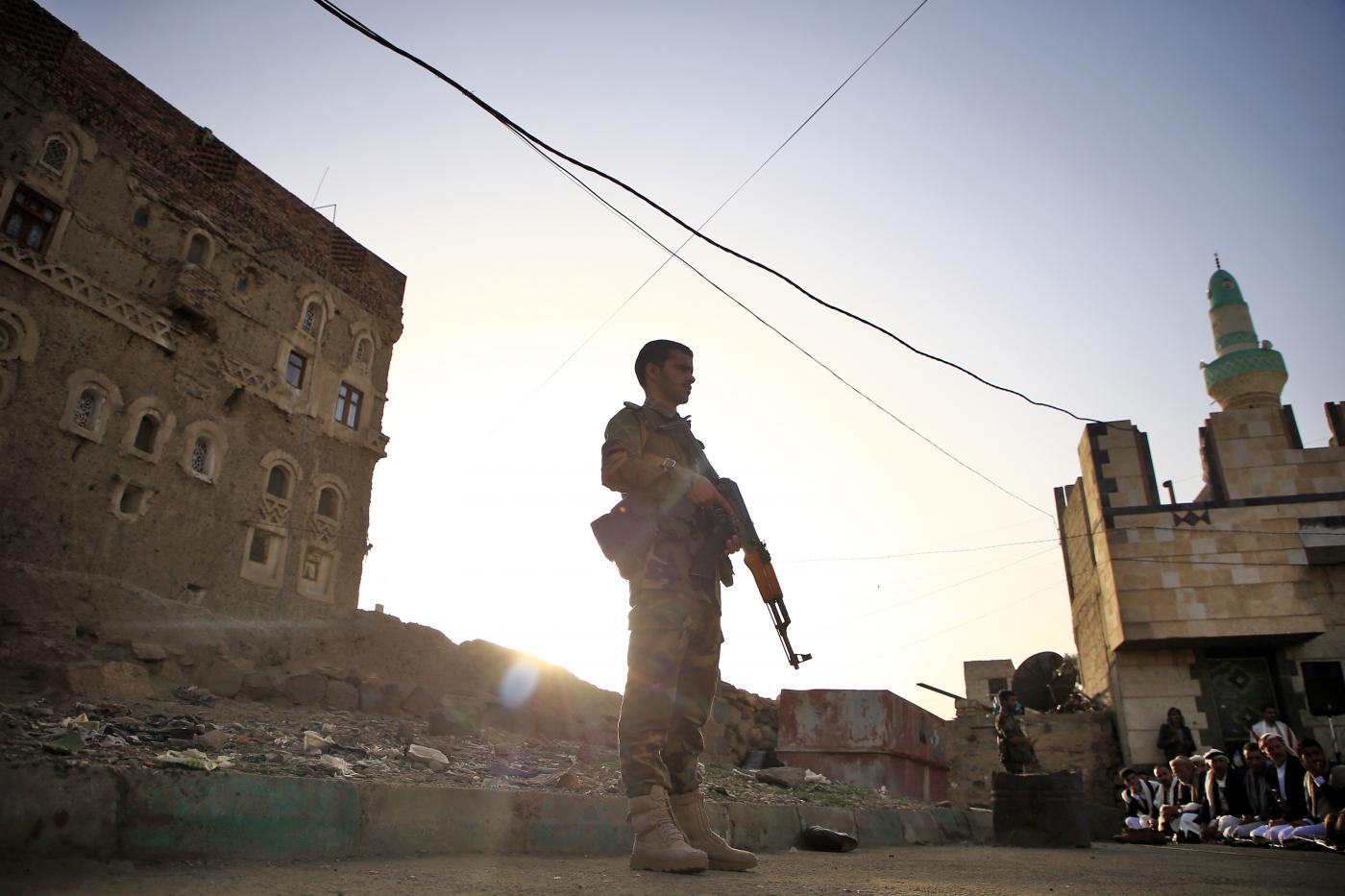
Ahead of World Press Freedom Day, several human rights groups are calling for the release of four Yemeni journalists sentenced to death by Houthi authorities who control the capital Sanaa.
Amnesty International, Mwatana for Human Rights, Human Rights Watch and the Samir Kassir Foundation said in a joint statement on Monday that the journalists were detained on "trumped-up charges", including spying for Saudi Arabia and spreading false news in support of the kingdom.
The detainees, Akram al-Walidi, Abdelkhaleq Amran, Hareth Hamid and Tawfiq al-Mansouri, have been jailed since 2015. In April, a special criminal court in Sanaa sentenced them to death. "It is outrageous these brave journalists remain at risk of death simply for telling the world the truth about the suffering in Yemen," said Heba Morayef, Amnesty International's Middle East and North Africa director.
'To mark World Press Freedom Day, the Houthi de facto authorities must immediately quash their death sentences, drop all pending charges and release all journalists imprisoned for their work'
- Heba Morayef, Amnesty International
World Press Freedom Day is observed annually on 3 May. It was recommended by the UN cultural agency UNESCO in 1991 and adopted by the General Assembly two years later to celebrate "the fundamental principles of press freedom".
"To mark World Press Freedom Day, the Houthi de facto authorities must immediately quash their death sentences, drop all pending charges and release all journalists imprisoned for their work."
New MEE newsletter: Jerusalem Dispatch
Sign up to get the latest insights and analysis on Israel-Palestine, alongside Turkey Unpacked and other MEE newsletters
The rights groups accused Yemen's Houthi rebels of targeting "political opponents, as well as journalists, human rights activists and members of religious minorities".
They said the four journalists have faced "dire conditions" in jail, including reports of torture and lack of medical care.
"We call on the Houthi authorities to open an effective, independent and impartial investigation into the allegations of torture and other ill-treatment suffered by the journalists, and hold those responsible accountable for their actions," said Ayman Mhanna, director of the Beirut-based Samir Kassir Foundation.
'Truly dismaying'
The Houthis and their allies took Sanaa in 2015, ousting the government of President Abd Rabbuh Mansour Hadi. Saudi Arabia and the United Arab Emirates, which view the Houthis as proxies for regional rival Iran, started a bombing campaign against the rebels.
The conflict has killed tens of thousands of people and brought the already impoverished country to the verge of famine, turning Yemen into the world's biggest humanitarian crisis, according to the United Nations.
All parties in the war have been accused of human rights violations, including enforced disappearances, targeting civilians and detaining journalists.
Last month, the Committee to Protect Journalists, a New York-based watchdog, denounced the death sentences against the four Yemeni journalists in Sanaa.
"At a time when Yemen needs accurate news and information more than ever, this sentence is truly dismaying and will put the Houthis beyond the pale internationally should it stand," CPJ researcher Justin Shilad said in a statement on 11 April.
"We urge the Houthis to immediately reverse this decision and release all journalists in their custody."
Afrah Nasser, Yemen researcher at Human Rights Watch, said the detention of the four journalists "is a shocking reminder of the repressive media climate that still exists in the country".
Middle East Eye delivers independent and unrivalled coverage and analysis of the Middle East, North Africa and beyond. To learn more about republishing this content and the associated fees, please fill out this form. More about MEE can be found here.


